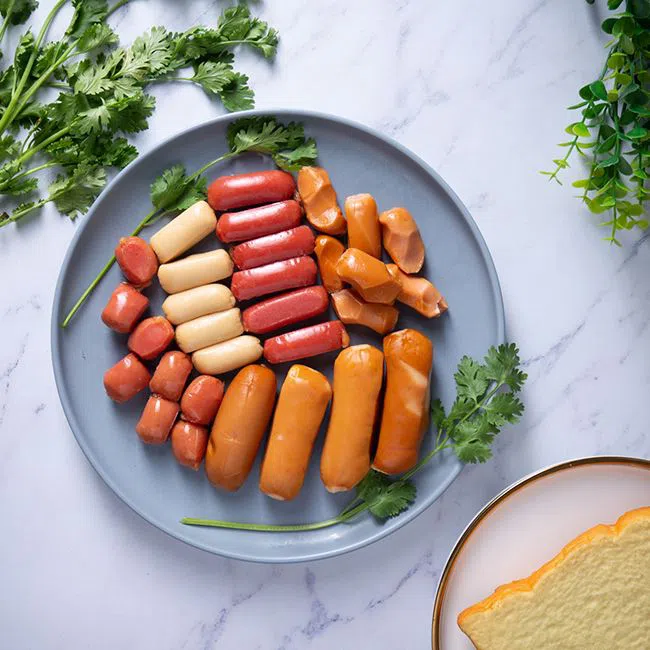Welcome to our company
📧sales@artificialcasing.cn 📞+86 532 85663688
Definition Of Collagen Casing
Definition Of Collagen Casing
Collagen casings are made from livestock skins and tendons as raw materials. Before 1925, natural casings were used to process sausages at home and abroad. Natural casings are made from the small intestines of sheep or pigs. The former is called sheep casings and the latter is called pig casings. This kind of casing is breathable, not only edible, but also capable of being steamed, and it can shrink in line with meat when heated. However, the output of natural casings is limited by many factors. With the expansion of the market demand for casings, the demand for casings has increased correspondingly, and the contradiction that the supply of casings exceeds demand has gradually appeared. At the same time, with the development of sausage products, natural sausage casings have also exposed some shortcomings, such as: completely manual operation, high labor costs, causing serious environmental pollution, and the thickness of natural sausage casings is not standardized, not suitable for mechanized production of sausage products, product quality Not easy to control. Therefore, artificial casings appeared after 1925.

Artificial casings are divided into three categories according to their materials, namely plastic casings, cellulose casings and collagen casings.
Collagen casing is made of livestock skin and tendons, so it is edible, but casings with a larger diameter are thicker; it is not suitable for consumption. Collagen casing is different from cellulose casing. Pay attention to the heating temperature during thermal processing, otherwise the collagen will become soft. The specifications of collagen casing manufacturer Rixu range from 19mm/20mm to 44mm/46mm.
LATEST NEWS
- Pros And Cons Of Collagen Casing 2021-12-09 08:40:37
- Definition Of Collagen Casing 2021-08-20 11:38:53
- Definition And Use Of Casing 2021-06-09 11:47:11
- Casing Use Storage Method 2021-06-03 11:47:34
- Useage Of Collagen Casing 2021-05-13 11:48:54
- Introduction Of Collagen Casing 2021-05-11 11:48:02
- How To Produce Collagen Casing 2021-04-28 17:04:39
- Advantages Of Collagen Casing 2021-04-23 11:49:57
- Eligibility Criteria For Collagen Casing 2021-04-15 11:50:20
- Processing Technology Of High Quality Pig Casing 2021-03-26 11:45:29




 Online Inquiry
Online Inquiry
 Online Inquiry
Online Inquiry

